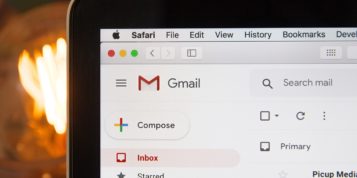People talk regularly about using email recommendations to improve customer sales and many a company has tried to emulate Amazon’s success at this.
However, although we know they can be used to effectively drive up sales and build customer loyalty, not all recommendations are equal. Get it right and you show your customers they are understood, valued and ‘belong’ with a brand’. Get it wrong and you risk turning them off.
If brands can surround their customers/prospective customers with appropriate contact across core digital channels, while providing them with a relevant experience in the context and time that’s most relevant to them, then they are showing the love and affection that creates a ‘digital hug’.
But the devil is in the detail, and brands need to treat each customer on a personal level, tailoring communications to their own preferences and likes.
Brands need to understand their digital customer’s journey individually and how they progress from browsing, through to purchase, and post-purchase. The importance for a marketer lies in being able to not only identify what stage a customer is at but manage the content they receive at each stage. But with potentially thousands of customers on your website and even more products, unless technology aids marketers here it’s only a statement and not a reality.
On average 97per cent of your website visitors won’t buy, and 70 per cent of those visitors who go on to the basket stage end up leaving the item behind. To change this brands need a great salesman inside the store but also a reliable postman who knows exactly when to deliver that promotional material and what to include in it. Ideally, the salesperson and the postman should be great friends, and well-coordinated to deliver the best results.
The latest technology can mirror this offline experience online and via email. The solution is automated product recommendations based on data gathered about individual customers as well as their collective customers. Recommendation engines can be used not only to track customer behaviour on-site but also, by listening to this behaviour, trigger relevant content across different channels.
If a customer is looking at one product, why not offer alternatives? Or accessories? By tracking and listening to customer behaviour on-site, the wisdom of the crowd can be used to ensure this process is automated. For a customer it means they benefit from relevant content based on how similar customers are behaving. For marketers, it means they can sit back and watch their customer’s behaviour providing content for other customers.
A recent study we did found that different types of recommendations can affect the likelihood of consumers coming back to a retailer. For example, 21 per cent of men and 19 per cent of women would come back to an online retailer if they were given ‘recommendations based on their purchase and browsing history, such as related items, or complete the look’.
Male only brands can therefore take advantage of the ease and convenience of recommendations to draw men back to them. And again, more men (17per cent) than women (12 per cent) would return to a brand if they received recommendations ‘based on items bought by other people that were similar to your purchases’.
Brands also need to be aware that different age groups are likely to react in different ways to recommendations. The Emarsys survey found that the 25 – 34 year old age group are more likely to come back to a brand based on recommendations made to them. Of those in the 25-34 year old age category 22 per cent were likely to come back to an online retailer while only 15 per cent were likely to in the 45-54 year old age group. This difference should be considered when brands are segmenting their audiences and considering how frequently they communicate, and what to send their customers.
The latest email marketing solutions allow companies to do just this – by automatically watching the customer’s journey it allows firms to offer superior cross channel marketing solutions. These intelligent recommendation engines have great capabilities. In the best case, they are integrated with the functionalities of customer intelligence, marketing automation, and email & multichannel messaging.
In this case such recommendations can now be made effortlessly from web to email and mobile devices. Many companies are now seeing concrete ROI (return on investment) from taking this approach.
Ebebek.com, a leading Turkish provider of mother and baby products, sells over 36,000 products from more than 150 brands, but with a million+ customers browsing through thousands of products, (often without knowing what they needed), some inevitably got lost along the way. The brand wanted to help more of those customers discover valuable products.
By implementing an intelligent, automated email marketing solution that uses predictive algorithms, resulting in highly accurate modelling of behavioural patterns and similarities, the company was able to segment customers according to engagement, recency, frequency and monetary value (ERFM). Each new parent now receives the right content at each step of their child’s development, creating a loyal customer for life – a smart approach that has resulted in generating 7x more revenue by predictive product recommendations alone.
Another company to benefit from this approach is the UK firm Square Meal which has a long heritage of delivering independent reviews of London and the UK’s restaurants and venues. They generate £150 million of restaurant bookings a year this way. And one of the things they are able to do better than any of their competitors is recommend the restaurant or venue you want – before you know it yourself.
For this they use an intelligent email marketing solution. With this intelligent system more bookings revenue is generated from recommendations, and visitors are 67 per cent more likely to click through to a restaurant from emails with recommendations, as well as four times more likely to convert.
By embracing the latest intelligent, automated email marketing solutions brands can give their customers the ‘digital hug’ they need to become loyal customers and repeat purchasers. With over 70 per cent of people never returning to an online brand from their first visit, this is one new technology brands ignore at their peril.






